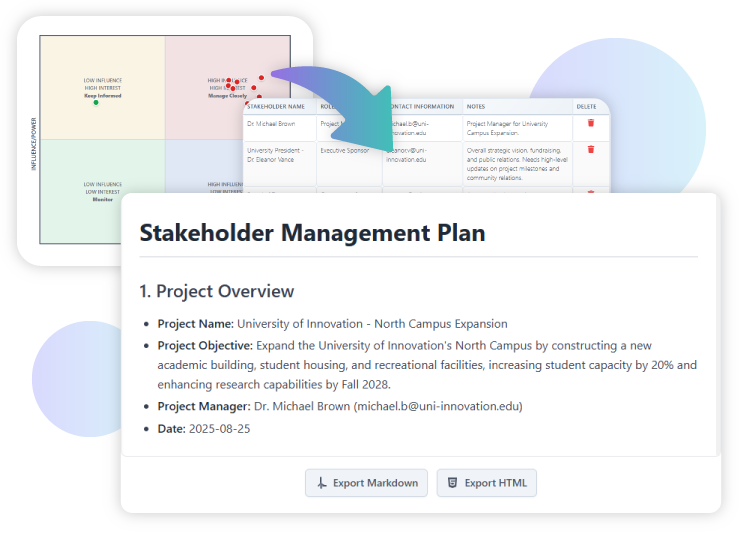 Visual Paradigm Desktop |
Visual Paradigm Desktop |  Visual Paradigm Online
Visual Paradigm OnlineWhen running any project—whether it is launching a new product, implementing software, or executing a marketing campaign—one constant factor decides success: people. These people, known as stakeholders, influence or are influenced by the project’s outcome. Without a structured way to manage them, even the best-planned projects can face resistance, delays, or complete failure. This is where a stakeholder management plan becomes essential.
A stakeholder management plan is a structured document that identifies project stakeholders, analyzes their level of influence and interest, and outlines strategies to engage them effectively.
Instead of leaving communication to chance, it ensures that everyone involved—executives, team members, clients, suppliers, and regulators—receives the right amount of attention, updates, and involvement at the right time.
Projects often involve conflicting interests. A stakeholder management plan provides transparency, making it easier to balance priorities and reach agreements.
A structured plan reduces confusion. Everyone knows how, when, and why communication will happen, preventing misunderstandings.
Stakeholders can be sources of risk—through delays, objections, or lack of buy-in. By documenting potential risks and mitigation strategies, you address issues before they become roadblocks.
By mapping out stakeholders, you know exactly who matters most for your project’s success. High-influence and high-interest individuals can be managed closely, while those less involved can still be monitored appropriately.
Ultimately, engaged stakeholders are more cooperative, leading to smoother execution and a higher chance of meeting project goals.

Manually tracking all these elements in spreadsheets or notes can quickly become overwhelming. A stakeholder management tool makes the process seamless:
This not only saves time but also ensures that nothing falls through the cracks.
A stakeholder management plan is not just paperwork—it is a roadmap for building strong relationships that drive projects to success. By identifying the right people, engaging them effectively, and monitoring progress, you reduce risks and improve collaboration.
With a dedicated tool, creating and maintaining this plan becomes far easier, giving project teams the clarity and confidence to focus on execution.